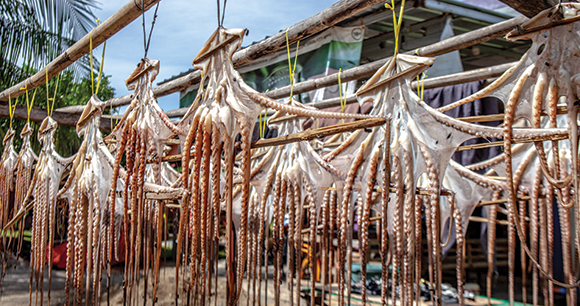Efforts to protect octopuses from commercial farming continue, with legislation proposed this year in several states to prohibit octopus farming and the sale of farmed octopus products. Campaigns by animal protection and environmental groups have resulted in the introduction of bills to prevent the raising of octopuses for food in Connecticut, Hawai‘i, Massachusetts, New Jersey, New York, North Carolina, and Oregon. These bills come on the heels of last year’s enactment of octopus farming bans in Washington and California, and introduction in the US Senate of the Opposing the Cultivation and Trade of Octopus Produced through Unethical Strategies (OCTOPUS) Act.

While there are currently no octopus farms in the United States, small octopus farming operations are underway in other countries, including Australia, Chile, Japan, Mexico, and Spain. Spanish seafood company Nueva Pescanova is planning a large commercial farm in the Canary Islands. The status of this effort remains uncertain, but research on octopus farming techniques continues at various facilities in Spain and around the world. In March 2025, another Spanish seafood company, Grupo Profand, acquired a permit for a research hatchery to breed octopuses. This concerning development suggests that the seafood industry is planning to forge ahead with octopus farming despite widespread opposition and significant ethical and environmental concerns.
Farmed octopuses are kept in barren, crowded tanks under near-constant light, in direct conflict with their curious, solitary, nocturnal nature. They are typically killed via immersion in ice water, a method known to cause slow and painful deaths. Studies show that octopuses experience fear and stress and will alter behavior to avoid pain. Scientific evidence strongly suggests that the complex welfare needs of octopuses could not be met on factory farms—underlining the need to prevent such operations from taking hold.